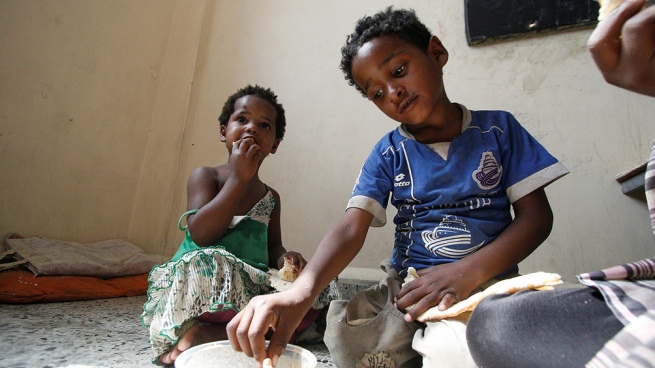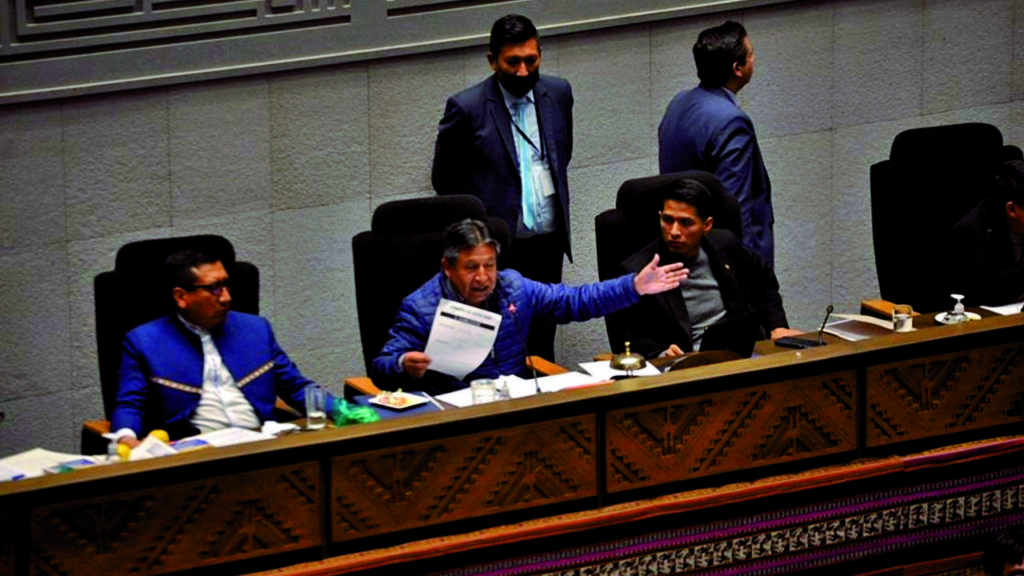Hunger -which has been on a path of relentless growth in recent years- has skyrocketed to unprecedented levels due to the increase in food prices, the loss of jobs due to the economic effects of Covid 19, extreme events and conflict, violence and insecurity.
According to him new Global Report on Food Crises 193 million people in 53 countries and territories were acutely food insecure in 2021, and are in urgent need of assistance. This is an increase of almost 40 million people compared to the 2020 figures.
Acute food insecurity is when hunger poses an immediate threat to people’s livelihoods and lives. A hunger that threatens to turn into famine.
In Latin America and the Caribbean, the situation in Haiti, Guatemala, Honduras, El Salvador, and Nicaragua is of concern. In those countries, a total of 12.7 million people were classified as Crisis or worse (Phase 3 or higher of the Integrated Food Security Phase Classification in 2021, an increase of almost one million people from 2020.
This does not take into account the possible additional deterioration that has occurred so far in 2022, driven by the conflict in Ukraine, which has highlighted the interconnectivity and fragility of agri-food systems globally.
Part of the response to this crisis is to put agricultural livelihoods at the center of responses, since, on average, two-thirds of people experiencing acute food insecurity live in rural areas, and depend on some form of agriculture. for your survival.
In 2020, funding for emergency interventions with an agricultural livelihoods approach represented only 8 percent of humanitarian funds allocated to food security: 92 percent was dedicated to food aid. We have to change this trend
Investing in agriculture and agricultural livelihoods is strategic and profitable: according to the Food and Agriculture Organization of the United Nations, the return on investment in these cases can be 10 times greater than if the funds were dedicated to food aid, and the effect of this type of intervention lasts over time.
Preventing, mitigating and responding to food crises must start with producing food where it is needed most, through programs that facilitate access to seeds, tools, fertilizers, livestock fodder and veterinary care.
To prevent rising food prices – driven by higher transport and energy prices – from escalating into a food crisis, use the agricultural seasons to rapidly increase the availability of nutritious food.
This can be achieved by providing producers with the necessary means to continue producing in adverse conditions: to face shortages of fertilizers and inputs, to face droughts or floods. We must enable rural people to stay on their land, earn a decent income, and lead their own recovery by ensuring their children are well fed and educated. If farmers affected by a hurricane receive food aid, they get a transitory (albeit much-needed) benefit, but if they receive support to restore damaged critical community infrastructure, we enable them to get their lives back on track.
In parallel to productive support, it is essential to guarantee access to food by the most vulnerable segments of the population, through the strengthening of targeted cash transfer mechanisms and social protection networks.
Interventions focused on saving lives and saving livelihoods must be accompanied by efforts to channel investments into the resilience of people and their communities. This means equipping them with the capabilities to anticipate threats in real time, and to take early action before a crisis hits.
It also means stimulating investment and employment through the activation of the social capital of the territories, providing access to small producers to financing -together with the private sector- and promoting associativity, short circuits and sustainable value chains.
In addition to emergency and resilience interventions, we cannot neglect the need to address the root causes of food crises: the persistence of rural poverty and structural inequalities, and the high cost of healthy diets.
Ultimately, we must work together and do it now to stop the escalation of hunger. It requires political will at the highest level and the coordinated effort of everyone, from national governments to local organizations, United Nations agencies, civil society and the private sector. Only in this way will we achieve the transition towards more efficient, inclusive, resilient and sustainable agri-food systems, and only in this way will we avoid facing the same situation next year, probably with more people who will need help.


















